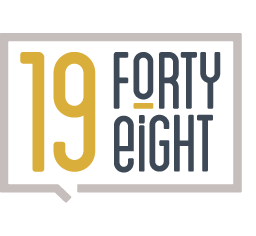Inclusion can’t simply be taught through theory. It must be felt, practiced and lived. That’s where forum theatre comes in — a powerful, performance-based tool that helps individuals and teams experience the behaviours that truly create inclusive cultures.
Forum theatre was originally designed to tackle social injustice and exclusion by turning spectators into participants — or “spect-actors.” In the context of workplace learning, it gives people a chance to explore and challenge real-world scenarios of bias, silence and exclusion, and to rehearse how they might respond differently.
At its heart, forum theatre is about behaviour change. It allows people to experience the emotional complexity of inclusion work. And that’s exactly what makes it such an effective tool for embedding inclusive leadership.
Rehearsing Real-World Challenges
Inclusive leadership isn’t just about knowing the right language or attending the right workshops. It’s about how leaders and colleagues show up day-to-day — in meetings, in hiring decisions and in moments of conflict or silence.
Forum theatre takes those everyday moments and puts them under the spotlight.
Imagine a scene: a team member is repeatedly interrupted in a meeting. The manager says nothing. There’s an awkward silence. No one speaks up.
This is where forum theatre becomes powerful. We perform the scene once, then invite the audience to step in. What could someone have done differently? What might an ally have said? What stops people from intervening — and how can they build the courage to act?
Participants rehearse responses in real time, trying out their own words, their own tone, their own presence. It’s practical, immediate and impactful.
Safe Space, Brave Practice
One of the most common reasons people don’t act on their inclusive intentions is fear: of saying the wrong thing or making it worse. Forum theatre offers a low-stakes environment to explore those fears. People can engage emotionally while maintaining enough distance to reflect. And because it’s interactive, they’re not passive observers — they’re actively practicing the behaviours of inclusive leadership.
It’s not about being perfect. It’s about trying, failing, reflecting and trying again. And in doing so, people build both confidence and skill.
Building Core Inclusive Leadership Capabilities
Forum theatre aligns beautifully with the key capabilities of inclusive leadership:
- Self-awareness – noticing your own reactions, assumptions, and role in the moment.
- Empathy – understanding the lived experience of others and how exclusion shows up.
- Courage – being willing to speak up or challenge behaviour, even when it’s uncomfortable.
- Accountability – recognising that inclusion isn’t someone else’s job — it belongs to all of us.
Traditional training often covers these concepts in theory, whereas forum theatre brings them to life in a way that’s emotionally resonant and behaviourally focused.
Creating Lasting Change
What makes forum theatre different from other types of training is the depth of impact. People don’t just remember what they learned — they remember what they felt, what they said, what they tried. That emotional connection is what makes the learning stick.
Inclusive leadership isn’t a one-off initiative. It’s an ongoing practice. Forum theatre helps organisations build that practice into the muscle memory of their teams — creating cultures where inclusion is not just a value, but a daily habit.
If you’re looking for a way to move beyond surface-level engagement and support your people to act with empathy, awareness and confidence, forum theatre might just be your most powerful tool.
Get in touch here if you’d like to know more about our work.
By Simon Coleman | 1948 Co-founder | Actor | L&D Specialist


